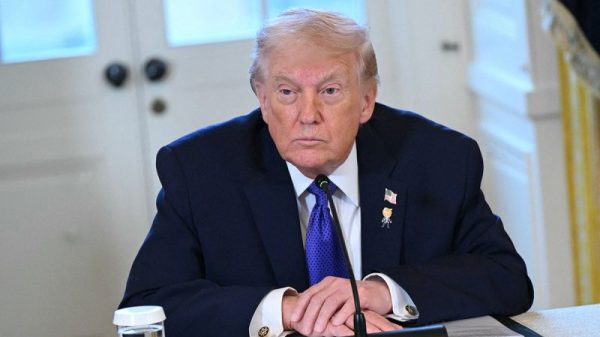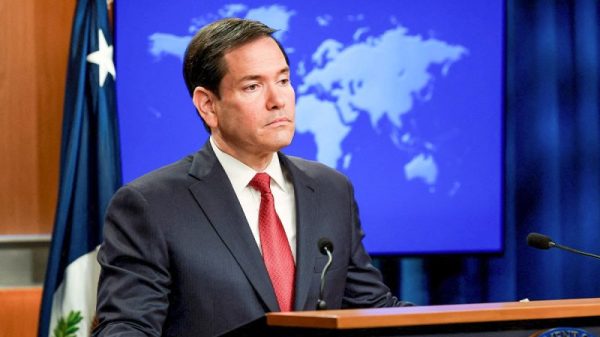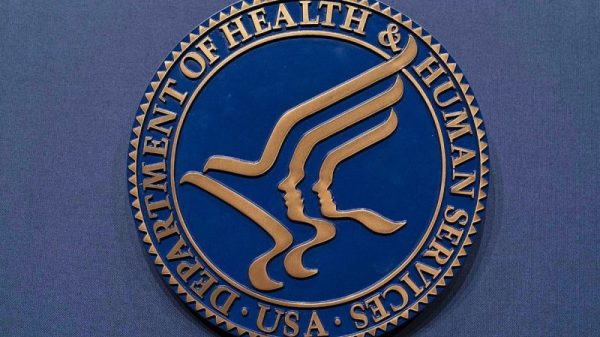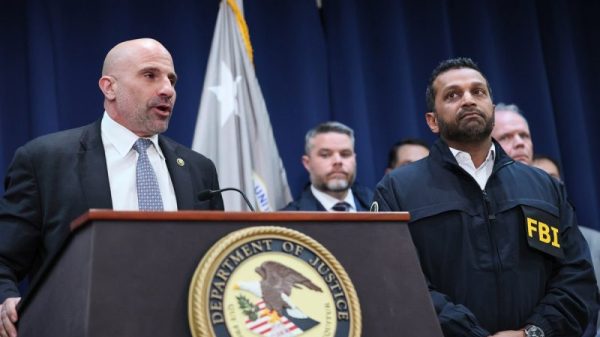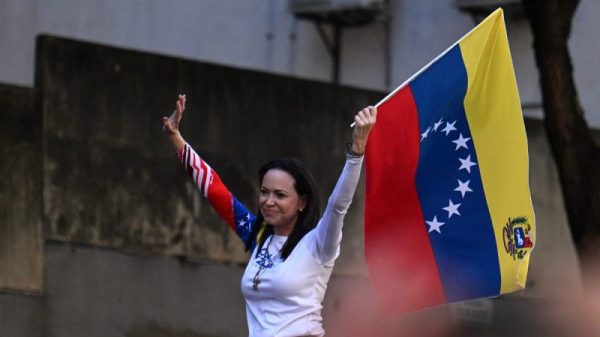Montana’s highest court on Wednesday struck down four laws that the state’s Republican-led legislature passed in 2021 to restrict voting.
The Montana Supreme Court declared the laws unconstitutional, siding with a district court judge who ruled against them in 2022. The laws “violate the fundamental right to vote provided to all citizens by the Montana Constitution,” according to a summary of the majority opinion that was signed by four of the seven justices.
The laws ended same-day voter registration in most cases, eliminated student ID cards as a permitted form of voter ID and sought to curtail paid ballot-collection efforts. They also outlawed absentee ballots for people who would be 18 years old by Election Day.
“Today’s decision is a tremendous victory for democracy, Native voters, and young people across the state of Montana,” Sheila Hogan, executive director of the Montana Democratic Party, said in a statement. “While Republican politicians continue to attack voting rights and our protected freedoms, their voter suppression efforts failed and were struck down as unconstitutional.”
The office of Montana’s secretary of state, Christi Jacobsen (R), criticized the Supreme Court decision Wednesday.
“The Secretary is devastated by this decision but assures Montanans that her commitment to election integrity will not waver by this narrow adoption of judicial activism that is certain to fall on the wrong side of history,” Jacobsen’s office said in a statement. “State and county election officials have been punched in the gut.”
Montana’s state legislature passed all four laws in 2021 as Republican-led states nationwide pursued tighter election rules in the wake of former president Donald Trump’s reelection defeat.
The Montana Democratic Party and other groups challenged the laws in court, with District Court Judge Michael Moses striking them down in separate rulings in 2022.
Native American communities said some of the laws especially hurt them. The Supreme Court opinion said the law targeting ballot-collection services “takes away the only option to vote for a significant number of Native Americans living on reservations.”
“Victory in a lawsuit is not just about winning in the courtroom, but it’s about upholding justice and defending the truth and restoring balance,” said Ronnie Jo Horse, executive director of Western Native Voice, one of the plaintiffs. The Supreme Court ruling, she added, is “not just a win for us but for all of Montana.”
Chief Justice Mike McGrath wrote the opinion released Wednesday and was joined by Justices Laurie McKinnon, James Jeremiah Shea and Ingrid Gustafson. Supreme Court justices in Montana are elected on a nonpartisan basis..
Montana is a key political battleground in the 2024 election. While it is not expected to be competitive in the presidential race, Sen. Jon Tester (D-Mont.) is a top target of national Republicans as they hope to flip control of the U.S. Senate.
Montana’s highest court on Wednesday struck down four laws that the state’s Republican-led legislature passed in 2021 to restrict voting.
The Montana Supreme Court declared the laws unconstitutional, siding with a district court judge who ruled against them in 2022. The laws “violate the fundamental right to vote provided to all citizens by the Montana Constitution,” according to a summary of the majority opinion that was signed by four of the seven justices.
The laws ended same-day voter registration in most cases, eliminated student ID cards as a permitted form of voter ID and sought to curtail paid ballot-collection efforts. They also outlawed absentee ballots for people who would be 18 years old by Election Day.
“Today’s decision is a tremendous victory for democracy, Native voters, and young people across the state of Montana,” Sheila Hogan, executive director of the Montana Democratic Party, said in a statement. “While Republican politicians continue to attack voting rights and our protected freedoms, their voter suppression efforts failed and were struck down as unconstitutional.”
The office of Montana’s secretary of state, Christi Jacobsen (R), criticized the Supreme Court decision Wednesday.
“The Secretary is devastated by this decision but assures Montanans that her commitment to election integrity will not waver by this narrow adoption of judicial activism that is certain to fall on the wrong side of history,” Jacobsen’s office said in a statement. “State and county election officials have been punched in the gut.”
Montana’s state legislature passed all four laws in 2021 as Republican-led states nationwide pursued tighter election rules in the wake of former president Donald Trump’s reelection defeat.
The Montana Democratic Party and other groups challenged the laws in court, with District Court Judge Michael Moses striking them down in separate rulings in 2022.
Native American communities said some of the laws especially hurt them. The Supreme Court opinion said the law targeting ballot-collection services “takes away the only option to vote for a significant number of Native Americans living on reservations.”
“Victory in a lawsuit is not just about winning in the courtroom, but it’s about upholding justice and defending the truth and restoring balance,” said Ronnie Jo Horse, executive director of Western Native Voice, one of the plaintiffs. The Supreme Court ruling, she added, is “not just a win for us but for all of Montana.”
Chief Justice Mike McGrath wrote the opinion released Wednesday and was joined by Justices Laurie McKinnon, James Jeremiah Shea and Ingrid Gustafson. Supreme Court justices in Montana are elected on a nonpartisan basis..
Montana is a key political battleground in the 2024 election. While it is not expected to be competitive in the presidential race, Sen. Jon Tester (D-Mont.) is a top target of national Republicans as they hope to flip control of the U.S. Senate.

